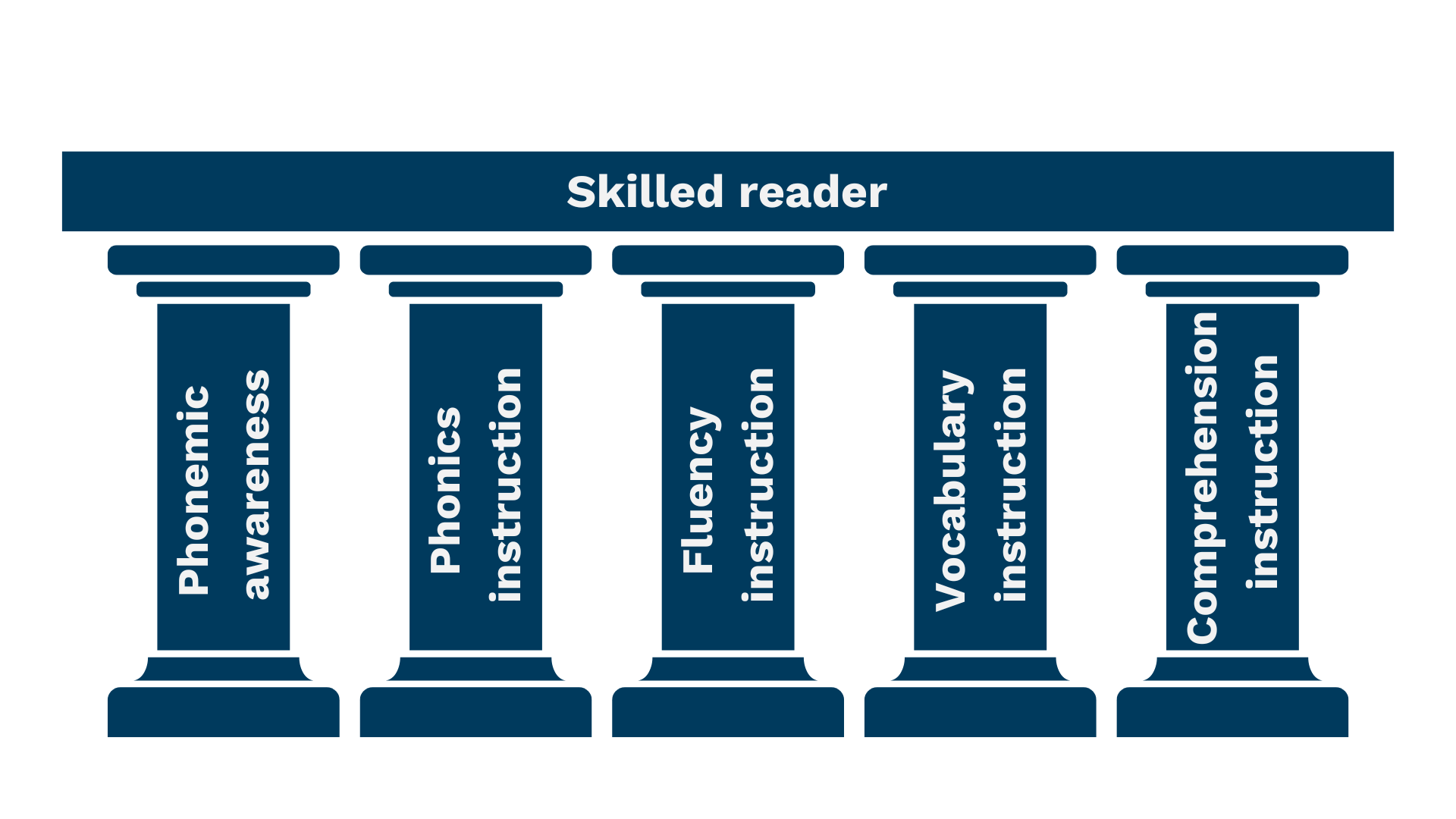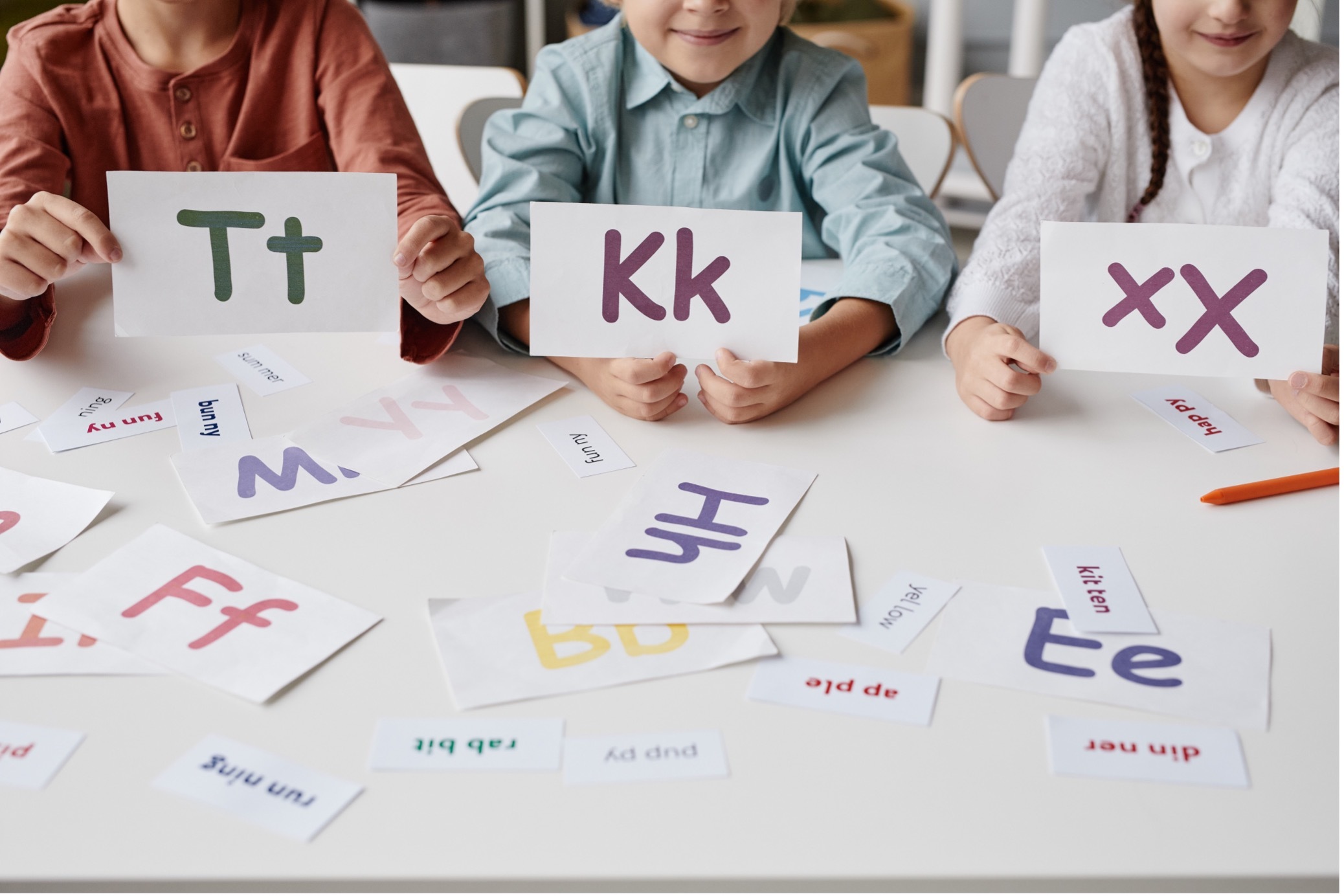Blog
·The Importance of Disciplinary Literacy in Addressing the Post-Pandemic Phonics Gap

Effective teaching of phonics is essential, as phonics forms the building blocks of reading. While it isn't the only skill that readers need, it's certainly the foundation.
Think of it like building a wall — without a strong foundation, at some point, that wall will fall down. So young readers who don’t have a strong foundation in phonics and rely too much on sight recall and context cues will, at some point, crumble and fall down in the same way.
We’ve spoken about the importance of phonics instruction before, but it’s an issue that keeps coming up, for multiple reasons. First, we are still in the wake of the Covid-19 pandemic. While lockdowns stalled the development of essential skills for many learners, phonics education for elementary schoolers has been particularly hampered.
These learners have now moved up to middle schools, where the deficit in their reading skills has widened further. They are now encountering more informational rather than fictional texts, but they don’t have the sufficient reading skills to access these new academic words.
At the same time, middle schools are also focusing more on literacy learning as a whole-school initiative, with an emphasis on disciplinary literacy.
As a result, phonics has become even more vital for the learners who have fallen behind, and educational establishments need to act quickly to get their students caught up.
How the Pandemic Affected Our Students
It comes as no surprise that the Covid-19 pandemic and the subsequent lockdowns affected education significantly. The effects are being felt in every facet of education and in every subject. Literacy is no exception. The latest NAEP results show declining reading scores across the board, within all age groups and percentiles, even high schoolers.

In fact, until learners are caught up with literacy, it’s unlikely that we will see other gaps close. This is because reading and writing is at the core of every subject across the curriculum. It is important to acknowledge that learners gain the vast majority of their knowledge through what they read, so we must have learners who are confident, competent readers.
When we think of phonics, we tend to associate it with tier one vocabulary — the social language that is acquired in early childhood and elementary school. But the effects of the pandemic are forcing us to change this way of thinking.
In middle school, the focus shifts to tier two and tier three academic language, but phonics is the foundation that supports all tiers of vocabulary. So in order to support the development and confident use of tier two and tier three vocabulary, we need to couple phonics instruction with morphemic analysis.
Phonics isn't just d/o/g — it’s vital at every level of language. But phonics instruction needs to be age and level appropriate for learners who have missed out on the development of this vital skill.
Literacy and Phonics as A Whole-School Challenge
Literacy should not be just the English department’s responsibility to teach, and more and more schools are now making literacy a whole-school issue. However, there is a problem with this approach too. Literacy is a huge concept made of numerous skills, each with their own skill sets, like Russian nesting dolls of reading and writing. Alex Quigley talks about this in his blog “Why Whole School Literacy Fails.”
“We wrongly offer it up as something extraneous, to be done in the corner of training days and to begrudgingly audit during the flagging final weeks of the summer. Instead, we should see reading, writing, vocabulary, speaking, listening, debate, and more as the complex tapestry of great teaching, enacted in every lesson, in every phase and subject domain, by every teacher.”
All of this is to say that phonics is part of whole-school literacy. It’s part of building skilled readers. But it’s important not to miss the forest for the trees. We can sometimes be guilty of referring to reading as a basic skill, which suggests it's easy. But the five pillars of reading, displayed here, illustrates how becoming a skilled reader actually requires the development of a set of complex sub-skills.

So when learning about phonics and how to teach it, especially within the middle school classroom, it is important not to get lost in the all-encompassing term of “whole-school literacy” and to know where phonics instruction sits when learning to read. For this, we can refer to the five pillars of reading.
The Importance of Disciplinary Literacy
There are things that can and need to be done across departments to promote phonics, specifically disciplinary literacy. The Education Endowment Foundation (EEF) defines disciplinary literacy as:
“An approach to improving literacy across the curriculum. It recognizes that literacy skills are both general and subject-specific, underlining the value of supporting teachers in every subject to teach students how to read, write, and communicate effectively in their subjects.”
Disciplinary literacy does not mean that every educator needs to become a literacy specialist or an English teacher, but we must recognize that language is at the heart of every subject and curriculum. If students can't access the words used in a particular subject, they can't access the content.
The amount of knowledge that learners need to consume to be well-equipped by the end of middle school is vast. It is not possible to cover it all in lessons alone, nor is this desirable, according to the Cognitive Load Theory.

Therefore, developing independence in learning must be one of the major goals of education, and it's obvious that those with access to reading have a much greater chance of success.
Conversely, learners’ ability to gain knowledge is greatly reduced by weak reading skills. If we don’t foster the independence and necessary skills to develop their reading and increase their exposure to new words, we are limiting their experiences.
This is another reason why phonics is vitally important — to give learners that platform of independence. Disciplinary literacy helps by working to rapidly increase students’ reading skills, getting them involved in and accessing the curriculum as quickly as possible.
The key is using reading intervention approaches based in etymology and morphology — and that’s where programs like Lexonik’s come in.
How Lexonik Can Help
At Lexonik, we fully support and advocate for the use of systematic synthetic phonics programs (SSP). If these are delivered well in early education, there will be fewer children needing additional support in middle school and beyond.
However, with the effects of the pandemic and the fact there will always be outlying reasons why students struggle with reading, there will always be a place for intervention. Learners may have missed out on instruction because of poor attendance, health reasons, weakness in phonological skills, or little English-language knowledge.
But learners who have fallen behind need to have access to fast, effective catch-up interventions. We can't just deliver the same SSPs at the same pace because the curriculum isn’t waiting for them. That’s why we’ve developed our own methodology that allows learners of all ages and at all levels to quickly catch up with their peers.
Lexonik Leap focuses on the essentials. We teach individual letter sounds — not letter names — because letter names don't help you to decode words, and they don't help you to spell.

Leap doesn't cover all vowel digraphs, but we do rigorously teach the common sounds to ensure they are thoroughly embedded. We like to think of this as building a strong literacy skeleton. By teaching the common sounds and building this strong skeleton, the “flesh” — i.e., the less common sounds that should be taught at the point of need — will strengthen the skeleton as their reading develops.
Conclusion
The teaching of phonics is something that should be prioritized beyond just the early grades, with a focus on disciplinary literacy, because the data coming out of schools shows that the current approach just isn’t working.
If you want to improve phonics in your school or district, contact us today or check out our Lexonik 360 package.